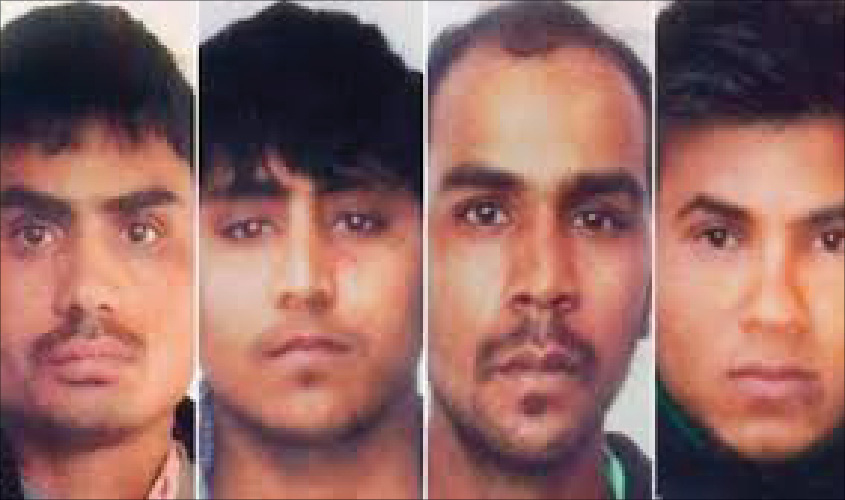Convict Pawan Gupta has not even sent his mercy plea to the President.
NEW DELHI: After rescheduling the date of hanging of four convicts in the Nirbhaya gangrape case twice in a year, uncertainty over the new date still looms as one of the convicts, Pawan Gupta, has not even sent his mercy petition to the President yet. Neither has he filed a curative petition.
The new date for hanging the convicts is 3 March. However, that too may get delayed if convict Pawan Gupta decides to use the legal remedies available to him at the eleventh hour. While the other three convicts have exhausted all legal remedies provided under the Constitution, efforts to delay the hanging still continue. The most recent effort was the petition filed by lawyer of convict Vinay Sharma before the Election Commission, challenging the rejection of his mercy petition. The petition challenged the Delhi government and raised questions on the timing of the rejection of his mercy plea since at the time of rejecting the mercy petition, the Model Code of Conduct was in place in Delhi, thus making minister Manish Sisodia “ineligible” to reject the petition.
However, these repeated attempts by convicts to buy time and delay the hanging are drawing a lot of criticism. Legal experts say that major reforms are required in terms of the time frame provided for appeal after a judgement. Abha Singh, Mumbai-based lawyer and women’s rights activist, told The Sunday Guardian: “The incident was of December 2012 and the fast track court pronounced their penalty in September 2013. Fast track court doesn’t mean that it would pronounce the judgement and remain silent on the execution part. It needs to fast track the whole process, not just one part. Thus, we require reform so that a time frame is provided and the whole process of appeal in High Court and Supreme Court after the pronouncement of judgment is over in a year at the maximum.”
Maintaining that an unreasonable number of appellate opportunities available to convicts is what convicts use to buy more time within the legal framework—which eventually works against the principle of reasonable justice—Vikram Singh Kushwaha, a practising lawyer at the Supreme Court, told The Sunday Guardian, “In case of death penalty, the matter is about killing someone. So in order to rectify that, we made open so many appellate opportunities to them that the actual punishment doesn’t take place if they keep using one or the other. The criminal justice system is not very linear in nature. In any sort of litigation in this country, every new level of appeal opens up plethora of issues and you can pick anyone of them to delay it further. So what is needed is a proportional and reasonable cut off in your appellate relief system. You should not be able to take an infinite number of appeals, one over the other, on the same issue. There has to be an end to the litigation.”
It has been eight years since the Nirbhaya gangrape shook the national capital in 2012. Despite pronouncing the first date of hanging more than a month back on 7 January, the order has not yet been executed as convicts are using every possible legal remedy to delay it. The first date of hanging was 22 January which had to change as one of the convicts, Mukesh Singh, filed a mercy plea before the President. The next date of hanging, 1 February, did not materialise since the mercy plea of another convict Vinay Sharma was pending. Following this, on 5 February, the High Court gave the convicts a week’s time to exhaust all their legal options. According to the High Court and Tihar jail manual, convicts could not be hanged separately, as they were convicted of the same crime.
Earlier, on 17 February, another such attempt to delay the execution was made by the counsel of Vinay Sharma on medical grounds citing “mental illness” of the convict which was rejected by the High Court on receiving the report of the medical officer who rejected the claim of Vinay Sharma’s counsel. In a related development, convict Mukesh sent a communication to the court that he doesn’t want to be represented by advocate Vrinda Grover, after which it appointed advocate Qazi to represent him.

